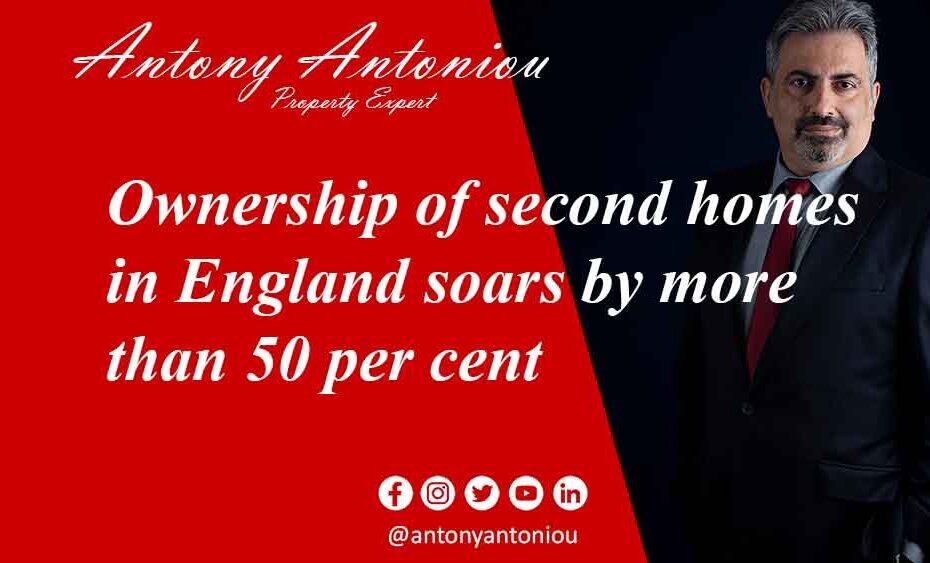Ownership of second homes in England soars by more than 50 per cent
There are now 482,000 second homes owned in England – a rise of almost 170,000 since the Tories came to power in 2010
The Surge in Second Homes in England: A Threat to Rural Communities
Over the past decade, England has witnessed a dramatic increase in the number of second homes, with the total rising by more than 50 percent. New figures have sparked concerns about the impact on rural communities, as the countryside risks becoming a collection of “ghost towns.”
Official data reveals that there are now a staggering 482,000 second homes owned in England, marking an increase of almost 170,000 since the Conservative Party came to power in 2010. This significant surge has put pressure on the government, particularly Downing Street, to take decisive action against the proliferation of short-term lets. Conservative MPs have already begun calling for stricter measures.
The Second Home Boom
According to statistics compiled by the English Housing Survey, the past decade has witnessed a remarkable uptick in property purchases. In 2010, more than half of second homes owned by British families were located overseas, with Europe being the preferred destination. However, by 2021-22, this trend had reversed, with three in five second homes now located in the UK.
The driving force behind this shift has been the boom in individuals acquiring properties to rent out as holiday homes, often through platforms like Airbnb. Census data further highlights the magnitude of the issue, showing that in certain regions, more than one in ten rural addresses are used for holiday rentals instead of serving as primary residences.
Impact on Rural Communities
Rural areas heavily dependent on tourism, such as Cornwall, Devon, East Anglia, Wales, Cumbria, and Northumberland, have been disproportionately affected by the influx of second home owners. Interestingly, many of these buyers hail from London and the South East.
The proliferation of holiday lets has sparked controversy due to its role in driving up property prices in rural towns and villages, effectively pushing locals out of the housing market. Tory MPs have voiced growing concerns and are pushing for government intervention to curb the conversion of homes into short-term rentals.
Calls for Action
Several Conservative MPs have taken a stand against the trend. Selaine Saxby, the MP for North Devon, recently urged the Levelling Up Secretary, Michael Gove, to implement a registration system for such properties. She is advocating for a proposal that would require owners to seek planning permission before converting a second home into a holiday rental.
Anne Marie Morris, the MP for Newton Abbot, went a step further by tabling a Parliamentary amendment calling for the introduction of licensing for short-term lets.
Meanwhile, the Labour Party has pledged to introduce a similar scheme if it wins power in the next election, criticizing the government for not doing enough to support rural communities. Angela Rayner, the party’s deputy leader, highlighted the plight of local areas turning into “ghost towns” during off-peak seasons.
Government Response
In response to growing concerns, the government introduced new legislation last year, granting local authorities the power to levy double the rate of council tax on second homes. While this move is a step in the right direction, many believe that more comprehensive measures are needed to protect the spirit and fabric of rural communities.
The surge in second homes in England may be a boon for investors and vacationers, but it poses a significant threat to the sustainability and vitality of rural areas. Finding the right balance between promoting tourism and preserving the essence of these communities will be crucial in the years ahead.

